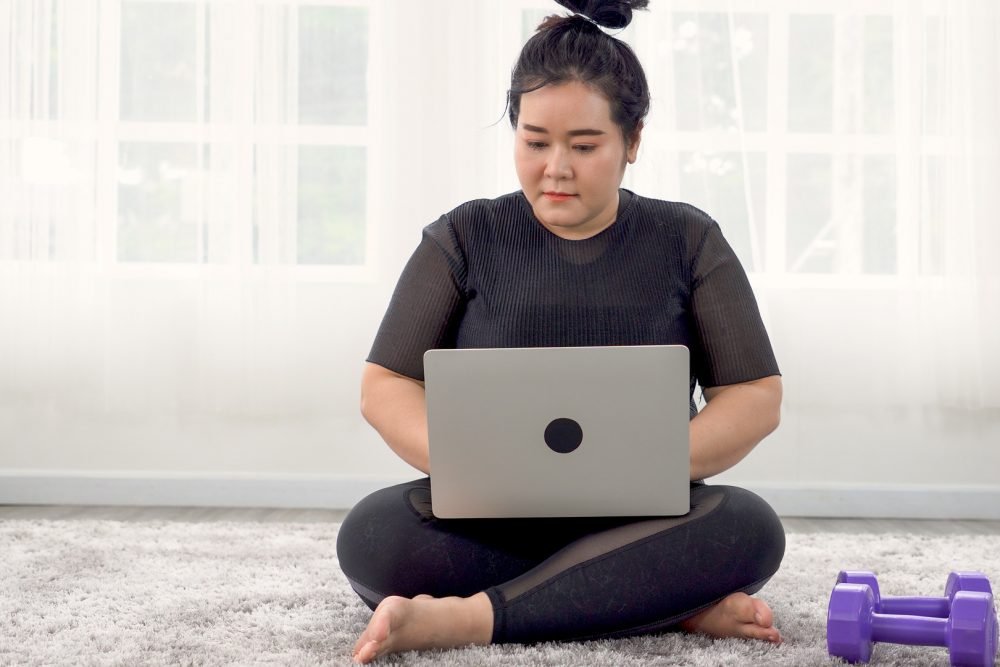Advertisment
Innovative, online automated obesity treatment program shows weight-loss results

Preliminary evidence shows potential for a fully-automated, online behavioral obesity treatment program to serve as a pragmatic resource in the primary care setting, according to a new study in Obesity, The Obesity Society’s (TOS) flagship journal.
“Our study shows that primary care clinicians can help their patients seeking to lose weight by providing them with an automated online program based in behavioral science that is very low-cost and does not overburden busy providers,” said J. Graham Thomas, PhD, professor in the Department of Psychiatry and Human Behavior at the Warren Alpert Medical School of Brown University and associate director of the Weight Control & Diabetes Research Center of The Miriam Hospital, Providence, R.I. Thomas is the corresponding author of the study.
Experts note that primary care is often where obesity is first addressed, but primary care clinicians often have few resources to offer patients for weight loss. When weight loss resources are available, they are often expensive and may involve other barriers that make them difficult to access, such as a requirement of frequent clinic visits. Previous trials of behavioral obesity treatment delivered in the primary care setting have typically involved intensive researcher involvement to deliver treatment and/or maintain participants’ engagement with the research study. The current study is one of the first times that a fully-automated obesity treatment program has been tested pragmatically in a large, primary care network with clinicians responsible for identifying patients, providing the program and supporting its use.
As part of routine primary care, healthcare providers and 16 nurse care managers offered a no-cost, online, obesity treatment program named Rx Weight Loss (RxWL) to 1,765 patients at the Rhode Island Primary Care Physicians Corp.—a primary care practice organization which includes approximately 60 practices with 100 physicians. Eligible patients were aged 18 to 75 years-old with a body mass index (BMI) of ≥ 25 kg/m2 and internet access. The majority of the 464 patients who ultimately enrolled in the program and engaged with treatment were White and female. Two percent of the sample identified as Hispanic or Latinx ethnicity, and Black/African-American. The program included 12 weekly online sessions, a self-monitoring program and automated feedback.
The average 12-week weight loss was 5.10%. Researchers note that most e-health obesity treatments report average weight losses of 2.5% initial body weight at 12 or 24 weeks.
Patients who reported their weight on all 12 weeks achieved an estimated weight loss of 7.2% compared to 3.4% in those submitting less frequently. Patients who accessed all 12-video lessons achieved an estimated weight loss of 8% compared to 4.2% for patients who accessed fewer lessons. Neither BMI, sex, nor identification with a racial/ethnic minority group were associated with these measures of engagement but age was associated with a greater number of lessons viewed.
The study by Thomas and colleagues “proposes a highly innovative model of behavioral weight management that potentially addresses several barriers encountered in primary care,” said Thomas A. Wadden, PhD, Center for Weight and Eating Disorders, Department of Psychiatry, Perelman School of Medicine, University of Pennsylvania, Philadelphia, Pa., and Adam H. Gilden, MD, MSCE, Anschutz Health and Wellness Center and Department of Medicine, University of Colorado School of Medicine, Aurora, in a commentary about the program. Wadden and Gilden were not associated with the research.
The study’s authors observe that further research will help determine whether the disproportionately small number of men and racial/ethnic minorities enrolled in this program results from the characteristics of the patients seen in these practices, a bias on the part of the clinicians in referring patients to the program, or lack of interest in weight loss expressed by these patients. Efforts to increase initial engagement with the program will help determine the effectiveness of the program in patients who may be less motivated to lose weight.
Other authors of the study include Emily Panza, Hallie M. Espel-Huynh, Carly M. Goldstein, Kevin O’Leary and Rena R. Wing of the Weight Control & Diabetes Research Center, The Miriam Hospital, and the Department of Psychiatry and Human Behavior, Warren Alpert Medical School of Brown University, Providence, R.I.; Noah Benedict, Rhode Island Primary Care Physicians Corp., Cranston, R.I.; and Albert J. Puerini, Department of Family Medicine, Warren Alpert Medical School of Brown University and Rhode Island Primary Care Physicians Corp.
The study, titled “Pragmatic Implementation of a Fully-automated Online Obesity Treatment in Primary Care,” will be published in the August 2022 print issue.
The authors report grants from the National Institute of Diabetes and Digestive and Kidney Diseases during the conduct of the study. Thomas also reports personal fees from Lumme Health Inc., and Wing reports personal fees from Noom Inc., outside the submitted work. The other authors report no conflicts of interest.





